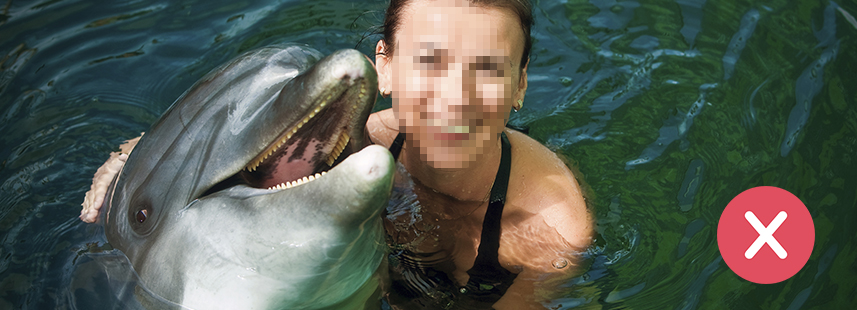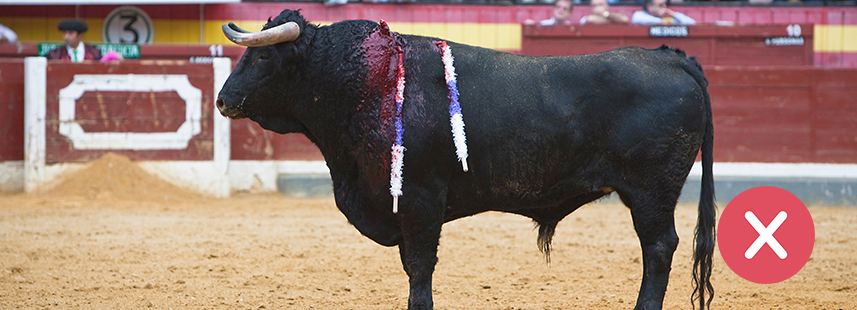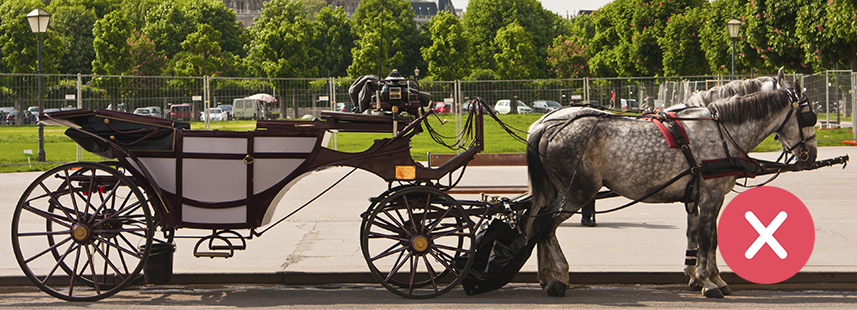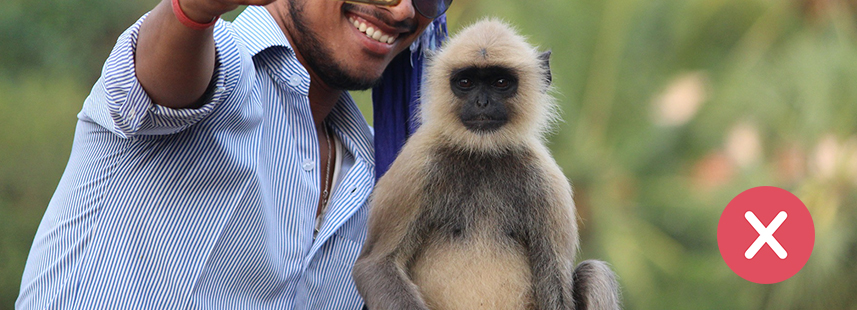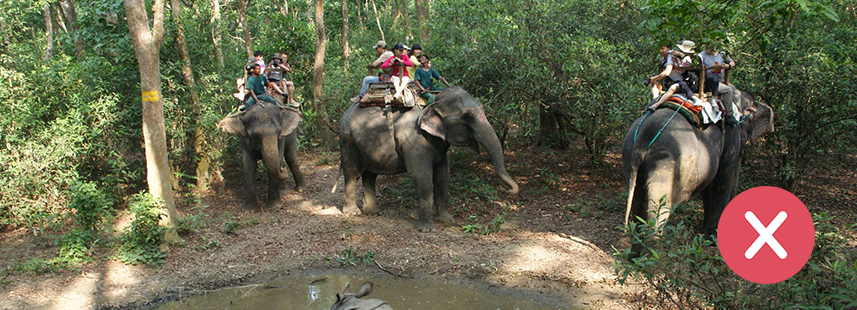Be a Responsible Tourist - Tips
Often, animal lovers unwittingly contribute to the exploitation of animals.
Various activities involving animals such as elephants, tigers and birds, which are advertised as fun and even educational activities, cause animals harm and can even put the survival of the species at risk. Travelers must therefore be well informed and aware of what is hidden behind the scenes of these seemingly harmless activities.
The following tips will help ensure you do not have a negative impact on animals during your vacation:
- Do not pay to feed elephants or other animals whose owners put them on display or force them to perform in the street.
- Do not take part in elephant rides.
- Avoid staying or eating in hotels and restaurants that hold wild animals in captivity.
- Do not swim with dolphins or other wild animals.
- Avoid riding horses, donkeys or carriages pulled by these animals.
- Do not feed wild animals (whether in their natural habitat or in captivity) as this can have serious consequences for their health and people’s safety.
- Avoid attending cruel festivals, even if these are a tradition.
- Do not buy souvenirs made from animal parts or take a live animal home with you as a “keepsake”.
- Avoid taking photos with animals that are used for this purpose.
- Never pay to attend shows in which animals have to pose or behave in unnatural ways.
- Do not be fooled by centers which refer to themselves as sanctuaries, orphanages or conservation centers. First of all, you must make sure that you are going to places where animal welfare is the only priority.
- Report any activity which could involve animal abuse.
- Collect any trash, particularly plastics, which might be generated in a natural environment.
Tips for animal watching in their natural habitat:
- Ask your guide to not get too close to the animals so as not to scare them with our presence or interfere with their natural behavior.
- When an animal is nearby, talk quietly and do not make any sudden movements that may frighten them.
- Stay away from breeding areas (such as nests, burrows or dens) as this may jeopardize the success of breeding.
- Bear in mind that using the flash of the camera can frighten animals and make them become aggressive.
- Do not approach the animals; let them approach you if and when they want to.
Tips for:
